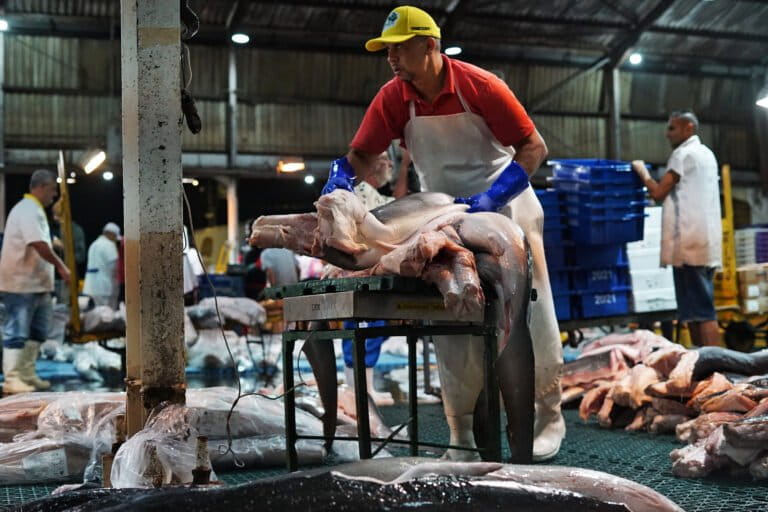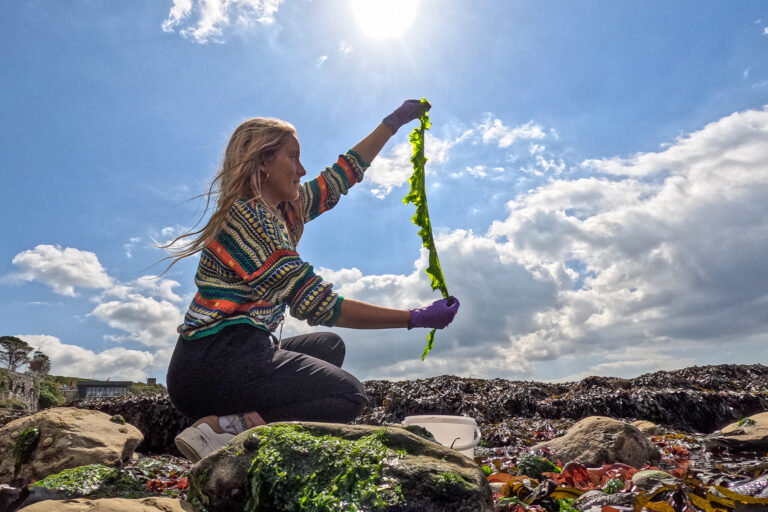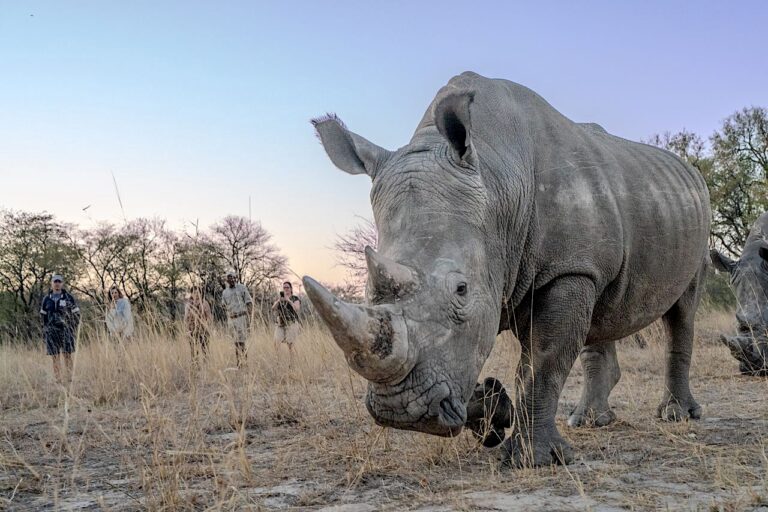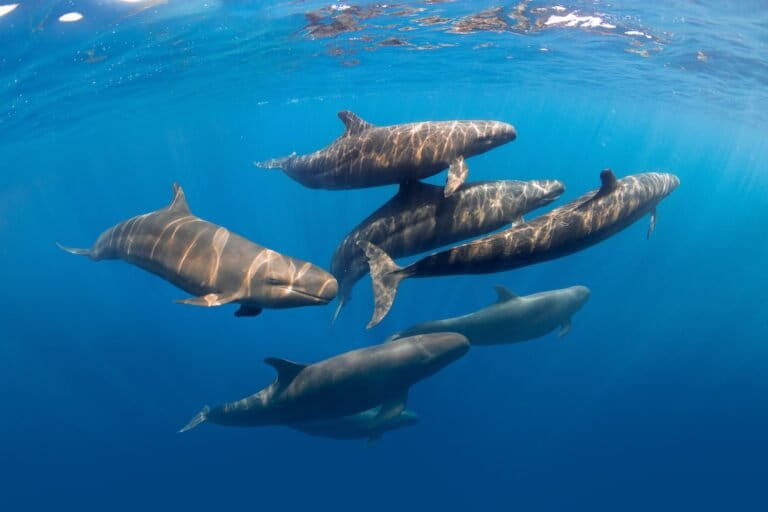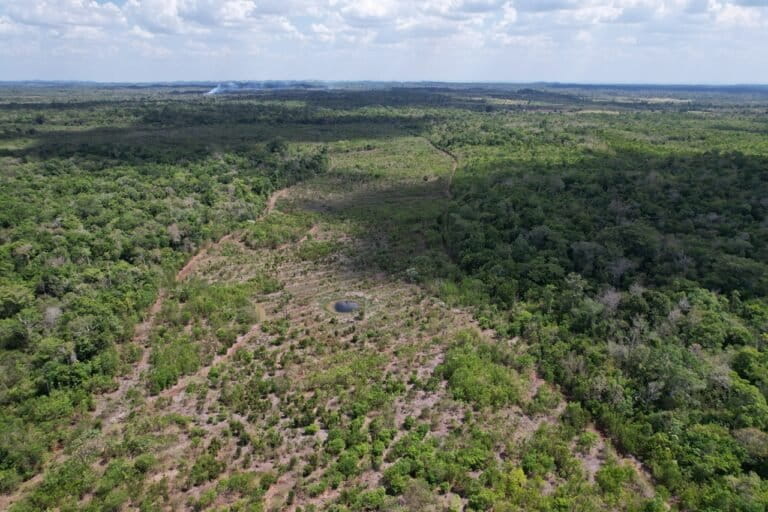Global warming will degrade 98% of coral reefs by 2050
Global warming will degrade 98% of coral reefs by 2050
mongabay.com
December 13, 2007
Ocean acidification caused by human-induced carbon dioxide emissions could dramatically alter the planet’s coral reefs and marine food chains, warns research published in the December 14 issue of Science and presented at the fall meeting of the American Geophysical Union (AGU) in San Francisco.
Modeling ocean chemistry under a range of atmospheric CO2 levels, an international team of researchers led by Ove Hoegh-Guldberg found that a rise of CO2 levels to 450-500 ppm would trigger major shifts in marine diversity, with present coral reefs giving way to “thermally tolerant and fast-growing corals”. Under a scenario whereby atmospheric CO2 levels exceed 500 ppm by 2050, the researchers predict large-scale losses of corals and a 50 percent decline in marine animal species. As water quality erodes, phytoplankton blooms would increase, say the authors. The Great Barrier Reef of Australia, the world’s largest reef, would likely be most affected.
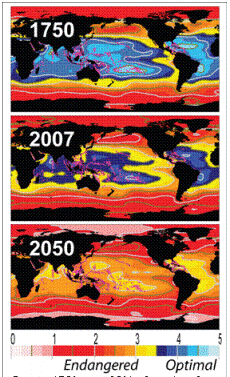 In year 1750, over 98% of coral reefs (magenta dots) grew in optimal conditions with aragonite saturation greater than 3.5 (blue colors). Such water is rapidly disappearing and will be gone in several decades if current carbon dioxide emission trends continue. Atmospheric CO2 levels are 280 ppm, 380 ppm, and 550 ppm for years 1750, 2007, and 2050, respectively. |
“Before the industrial revolution, over 98% of warm water coral reefs were bathed with open ocean waters 3.5 times supersaturated with aragonite, meaning that corals could easily extract it to build reefs,” said Long Cao, an oceanographer at the Carnegie
Institution of Washington in Stanford, California. “But if atmospheric CO2 stabilizes at 550 ppm — and even that would take concerted international effort to achieve — no existing coral reef will remain in such an environment.”
Elevated carbon dioxide levels make oceans more acidic by stripping out carbonate ions, which are essential for marine organisms to build calcium carbonate shells and exoskeletons. Earlier research has estimated that in surface ocean waters there may be too little carbonate for organisms to form shells as soon as 2050. The loss of these small organisms would have a disastrous impact on predators — including salmon, mackerel, herring, cod — that rely on them as a food source and could spell trouble for other species.
Ken Caldeira, a co-author of the Science paper and a presenter at the AGU meeting, says that regardless of what happens with climate, coral reefs are threatened by ocean acidification. As such, measures that focus solely on mitigating temperature change will be of little help in slowing acidification.
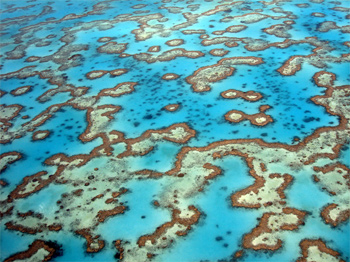 Coral reefs photographed from the air are surrounding Heron Island on the southern Great Barrier Reef. Coral reefs build extensive structures which can cover hundreds and thousands of square kilometers. Seen from space, coral reefs represent one of the few signs of life on our planet. Image © Science |
“These changes come at a time when reefs are already stressed by climate change, over fishing, and other types of pollution,” said Caldeira, “so unless we take action soon there is a very real possibility that coral reefs — and everything that depends on them —will not survive this century.”
The researchers predict “increasingly serious consequences for reef-associated fisheries, tourism, coastal protection, and
people.”
“The scenarios presented here are likely to have serious consequences for subsistence-dependent societies, as well as on wider regional economies through their impact on coastal protection, fisheries, and tourism,” the authors write. “These consequences become
successively worse as atmospheric CO2 increases, and unmanageable for atmospheric CO2 levels above 500 ppm.”
Related
CO2 emissions cause ocean acidification, threaten sea life
Human-induced carbon dioxide (CO2) emissions could alter ocean chemistry to the point where it will violate U.S. Environmental Protection Agency Quality Criteria by mid-century if emissions are not significantly reduce, reports a team of scientists writing in the September 25, 2007 issue of Geophysical Research Letters. The commentary is the first to warn that atmospheric CO2 emissions will cause ocean waters to violate EPA water quality criteria.
Coral reefs decimated by 2050, Great Barrier Reef’s coral 95% dead
Australia’s Great Barrier Reef could lose 95 percent of its living coral by 2050 should ocean temperatures increase by the 1.5 degrees Celsius projected by climate scientists. The startling and controversial prediction, made last year in a report commissioned by the World Worldwide Fund for Nature (WWF) and the Queensland government, is just one of the dire scenarios forecast for reefs in the near future. The degradation and possible disappearance of these ecosystems would have profound socioeconomic ramifications as well as ecological impacts says Ove Hoegh-Guldberg, head of the University of Queensland’s Centre for Marine Studies.
CITATION: Hoegh-Guldberg, O., Mumby, P.J., Hooten, A. J., Steneck, R.S., Greenfield, P., Gomez, E., Harvell D. R, Sale, P.F., Edwards, A.J., Caldeira, K., Knowlton, N., Eakin, C. M., Iglesias-Prieto, R., Muthiga, N., Bradbury, R.H., Dubi, A., and Hatziolos, M. E. Coral Reefs Under Rapid Climate Change and Ocean Acidification. Science 14 Dec 2007.







